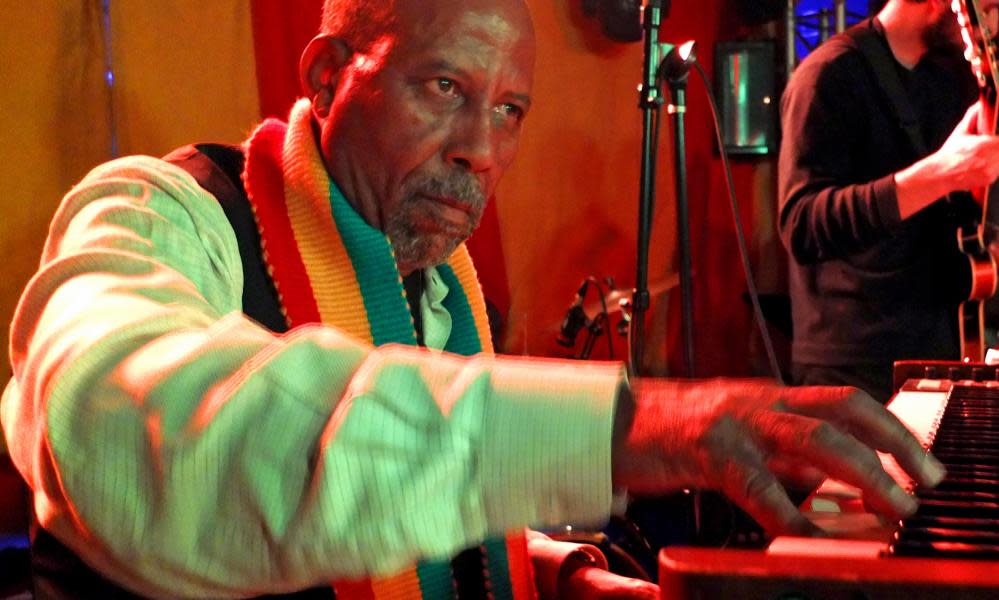Hailu Mergia: Yene Mircha review – ear-worming, sonically adventurous grooves

Ethiopian multi-instrumentalist Hailu Mergia’s backstory is one of “world music” cliche. Gaining fame in his home country as the organ and synth player for 70s jazz-funk outfit Walias Band, he relocated to Washington DC in the 80s, released a solo album in the US to little acclaim and ultimately gave up music to drive a cab. In 2013, though, Mergia was “rediscovered” by Awesome Tapes from Africa’s Brian Shimkovitz, who reissued that 1985 solo accordion odyssey, Hailu Mergia and His Classical Instrument, and a star was (re)born.
Of course, in his many years of relative obscurity Mergia continued to noodle away at his keyboard, honing his talent for skewed, ear-worming arrangements. The result was his first solo album in two decades, 2018’s Lala Belu. Where that album’s trio setup showcased a groove-laden, deep-swinging side to Mergia, his latest offering, Yene Mircha (My Choice), finds him taking a more meandering, sonically adventurous path.
Opener Semen Ena Debub artfully pairs a one-string lute, the masenqo, with Mergia’s accordion to create a hip-swaying shuffle that slowly builds into a joyous double-time motif. On the title track, Mergia channels the bright, Ellington-inspired horn lines of Stevie Wonder’s Sir Duke, before hitting a swampy reggae dub on Bayne Lay Yihedal and rounding off with the organ-funk of Shemendefer.
All of this in just a 35-minute runtime might sound like a chaotic mix, especially alongside Mergia’s spangly David Frank-style synths, which tend to cut through his compositions like a strobe on a wedding dancefloor. Yet it is precisely this sometimes kitsch mix of genres that makes Mergia’s music so endearing and uplifting. His right hand on a melody is unmistakable, and on Yene Mircha he lives up to its title, carving out a thoroughly idiosyncratic perspective.
Also out this month
A very welcome, deeply calming salve for these chaotic times as Métron Records reissues Japanese pianist Yumiko Morioka’s 1987 neoclassical album Resonance: 10 tracks of meditative atmospherics with shades of Ryuichi Sakamoto’s solo piano work. On a more upbeat note, Anglo-Latin singer-songwriter Malena Zavala releases her second album, La Yarará, a dreamy, pop-infused mix of introspective balladry, folk-laden lyricism and memorable melodies. And in a purely celebratory mode, Ghanaian folk trio Fra Fra release a field recording of their largely a cappella Funeral Songs; a raw, emotive polyphony.

 Yahoo News
Yahoo News 
